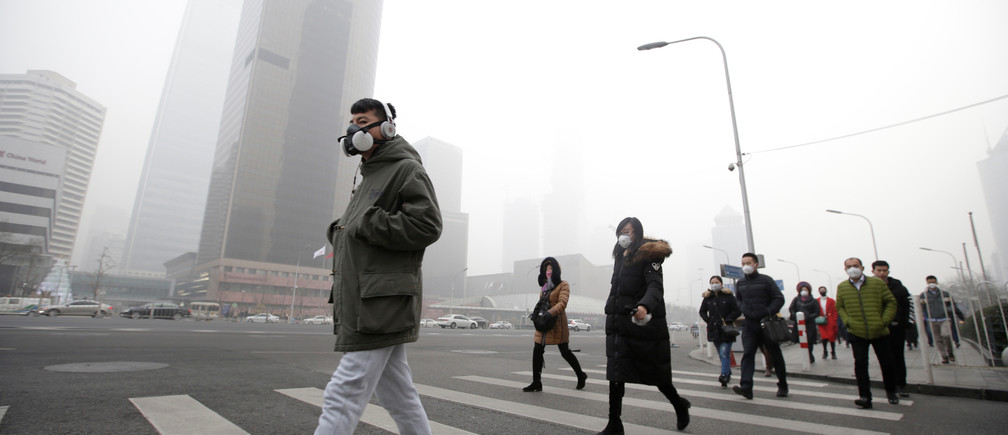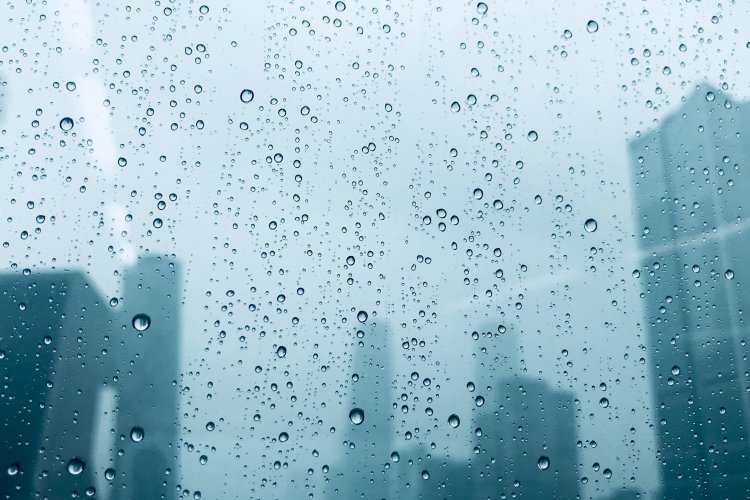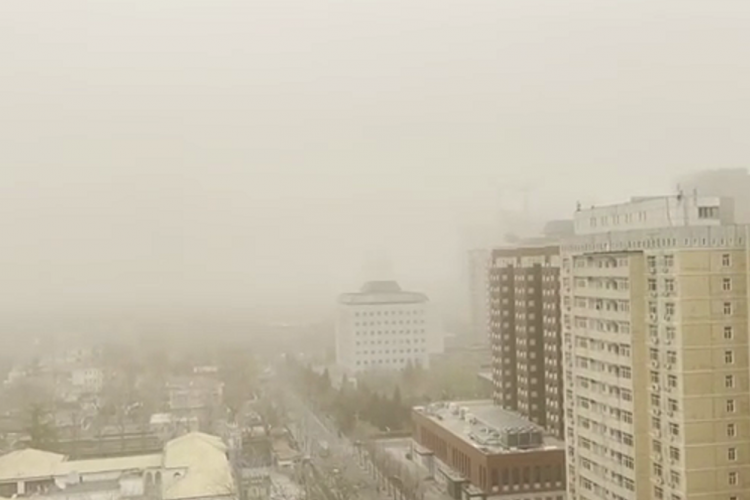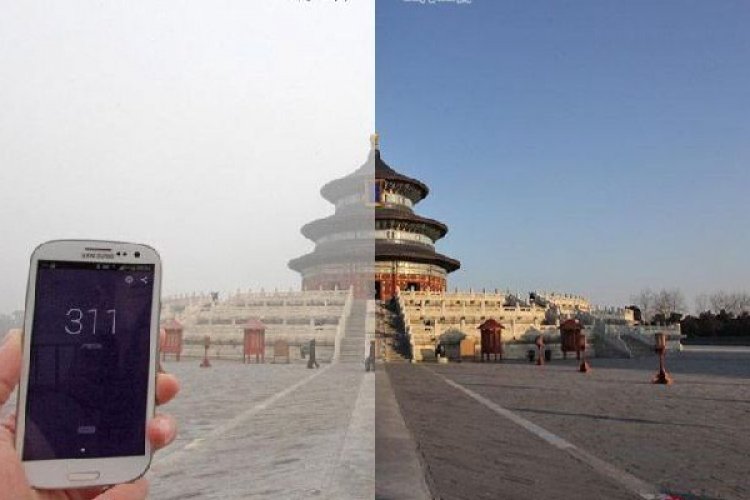Beicology: Can Tougher New Regulations Address China's Smoggy First Quarter in 2019?
How bad is the smog these days, really? Who is keeping tabs on the state of our drinking water? What has the government done about carbon emissions lately? In Beicology we turn our focus toward environmental news in the capital.
Stricter Regulations Aim to Clear the Air After 2019's Hazy Start
Concerns that China is forsaking environmentalism in favor of economics might be premature, at least according to a new order by the Ministry of Ecology and Environment (MEE).
The announcement outlines how new regulations will place higher approval standards on industrial projects nationwide, with a special emphasis on locales that have been overburdened by heavy polluting refineries for the steel, metal refining, petroleum, petrochemical, and other such sectors. Prime examples of such toxin areas include “the three regions of Beijing-Tianjin-Hebei, the Yangtze River Delta, and the Pearl River Delta [which] produce more than half of the nation’s steel and oil products despite covering only 8 percent of the country’s total land area,” according to a Reuters article about the Jun 28 MEE announcement.
While briefing reporters about the upcoming order, Liu Zhiquan, MEE Environmental Impact Assessments and Emissions Management Director, said: “It essentially aims to improve environmental quality and force local authorities to formulate a more sensible industrial plan.”
His announcement might reassure high-profile critics like Lauri Myllyvirta, a senior analyst at Greenpeace. In May, Myllyvirta said: “Predictably, local governments did away with restrictions on industrial operations that had squeezed output and emissions in 2017-18.” Her scathing remarks came on the heels of the Chinese Ministry of Ecology and Environment admitting that air pollution levels in Beijing, Hebei, and Tianjin increased 8 percent from January to April, according to the South China Morning Post. In its reporting about the MEE tougher upcoming approach, Reuters pointed out that the new regulations will likely hit manufacturers hard and impact the economy.
Liu went on to tell reporters last week that, under this new provision, local governments would be required to formulate “access lists” of spots where pollution-emitting factories could and could not be constructed going forward. Such access lists will be based on data about air, water, and soil in the areas under each local government's jurisdiction, and that information will be gleaned with the assistance of experts selected by the MEE. That data and the ensuing lists are, in Liu's view “vital for local authorities in their future decision-making ... It will help them avoid giving the go-ahead to some projects and then finding out they do not meet (environmental) requirements.”
While it is too soon to predict how effective these measures will be, perhaps critics like Myllyvirta can find consolation in the authorities' admission and addressing of the problem, rather than ceding such responsibility in favor of blatant economic gain.

How Pollution Affects Our Health
The Ministry of Ecology and Environment's newly announced plan came days after a scientist named He Guojun (also a Professor of Economics, Environment and Sustainability, and Social Science at the Hong Kong University of Science and Technology) outlined how China's pollution is affecting its citizens' health in an article published by The World Economic Forum. Aside from pointing out how toxic PM2.5 particles in smog can not only damage our lungs and trigger heart attacks and strokes, he also detailed subtler effects like how our bodies have "an inflammatory response to the particulate matter, which is what happens when something from outside your body goes into your system. And then the body tries to prevent it from doing harm, and that causes inflammation."
The piece is also noteworthy for its details about the heating system in northern China that has lead to widespread pollution throughout the region, especially when compared to southern China. What's more: He balances his criticisms and dire statistics with a very positive rundown of Beijing's recent progress against pollution. You can read the full interview here.
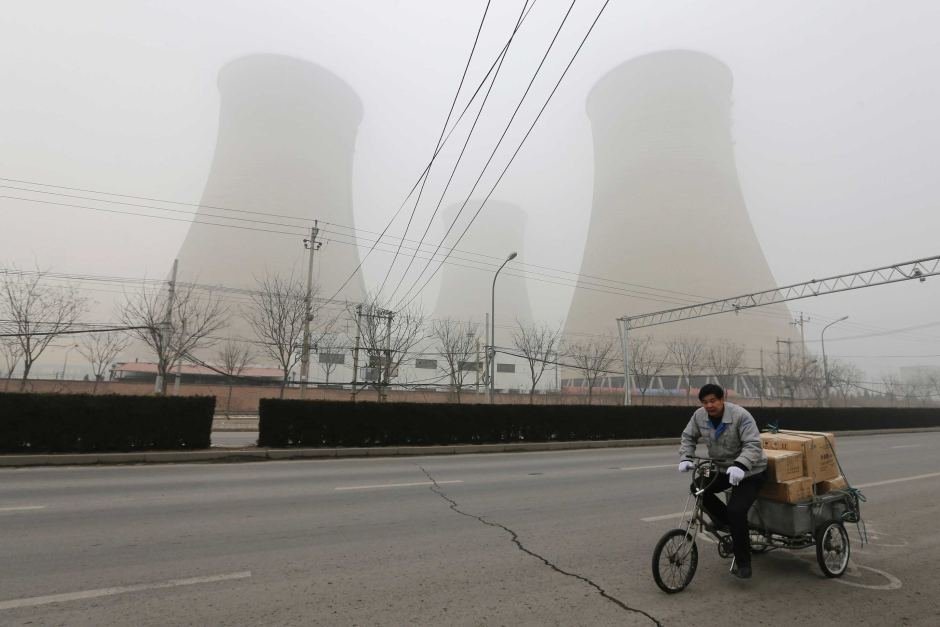
Some Good News, and Some Bad, about China's Anti-Pollution Push
Even more even-handed ecological critiques are coming courtesy of the Australia Broadcasting Corporation (ABC). Earlier this week it reported on findings that will prove demoralizing for anyone cheering on China in its slog against smog: the Middle Kingdom is still the world's worst polluter.
Among the most startling figures covered in the report: air pollution causes 1 million premature deaths in China annually, China provides billions of dollars to overseas coal refiners each year, and China has tripled the subsidies it gives to coal plants in the last couple of years.
On the upside, China produces, exports, and installs more renewable energy emitters like solar panels, wind turbines, and electric vehicles batteries than any other country. It also contributed a third of the world's total investment in renewable energy last year.
By presenting these figures in a balanced and unbiased way, ABC has painted a nuanced portrait of a nation attempting to tackle its most daunting, persistent problem. The story can be read in full here.
Read more of our ecological coverage here.
Photo: Reuters, The World Economic Forum, ABC

